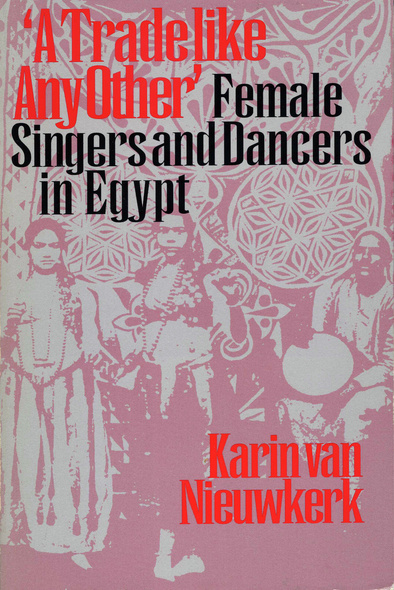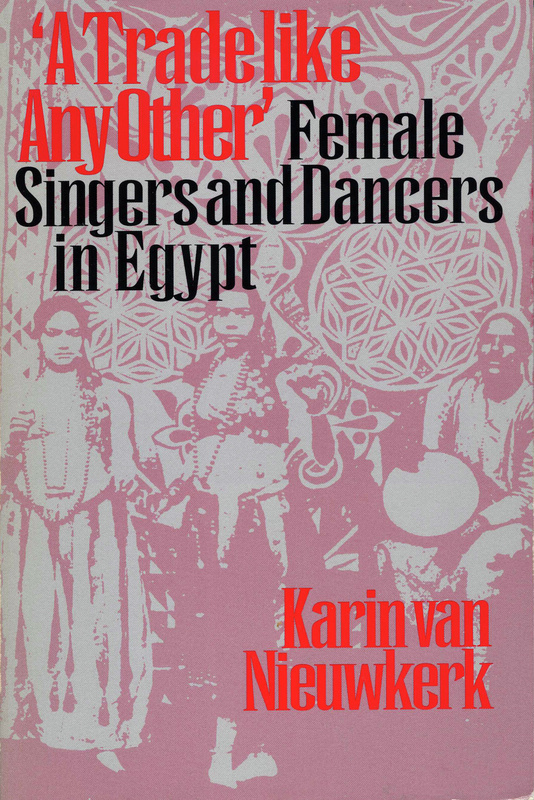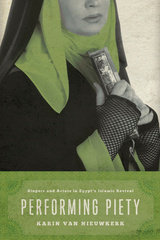A Trade like Any Other
Female Singers and Dancers in Egypt
In Egypt, singing and dancing are considered essential on happy occasions. Professional entertainers often perform at weddings and other celebrations, and a host family's prestige rises with the number, expense, and fame of the entertainers they hire. Paradoxically, however, the entertainers themselves are often viewed as disreputable people and are accorded little prestige in Egyptian society.
This paradox forms the starting point of Karin van Nieuwkerk's look at the Egyptian entertainment trade. She explores the lives of female performers and the reasons why work they regard as "a trade like any other" is considered disreputable in Egyptian society. In particular, she demonstrates that while male entertainers are often viewed as simply "making a living," female performers are almost always considered bad, seductive women engaged in dishonorable conduct. She traces this perception to the social definition of the female body as always and only sexual and enticing—a perception that stigmatizes women entertainers even as it simultaneously offers them a means of livelihood.
Drawn from extensive fieldwork and enriched with the life stories of entertainers and nightclub performers, this is the first ethnography of female singers and dancers in present-day Egypt. It will be of interest to a wide audience in anthropology, women's studies, and Middle Eastern culture, as well as anyone who enjoys belly dancing.
This fascinating ethnography of professional female entertainers in Egypt brings together issues and ideas relevant to dance, anthropology, ethnomusicology, gender studies, and area studies.... By providing new insight into historical, political, economic, religious, and cultural forces, van Nieuwkerk accounts for the ambivalent attitudes towards female professional performers in Egyptian society as well as the way they cope with their status.
Van Nieuwkerk's book is unique because it transcends formulaic suppositions and provides intelligent analysis of a world which has been overlooked for too long. She has partaken in the life of humble entertainers and has tried to understand and explain what their daily and professional lives are like, how they perceive their profession and themselves and how they are perceived by others. In doing so she has written a highly readable and enjoyable ethnography.
- Acknowledgments
- Note on Transcription
- One. Introduction
- Two. Female Entertainment in Nineteenth-Century Egypt
- Three. Female Entertainment in The Twentieth Century
- Four. Life Stories of Female Entertainers
- Five. Marginality
- Six. Honor and Shame
- Seven. Gender
- Eight. Female Entertainers: Feminine and Masculine
- Nine. Conclusions
- Appendix: Methodological Notes
- Notes
- Glossary
- Bibliography
- Index







